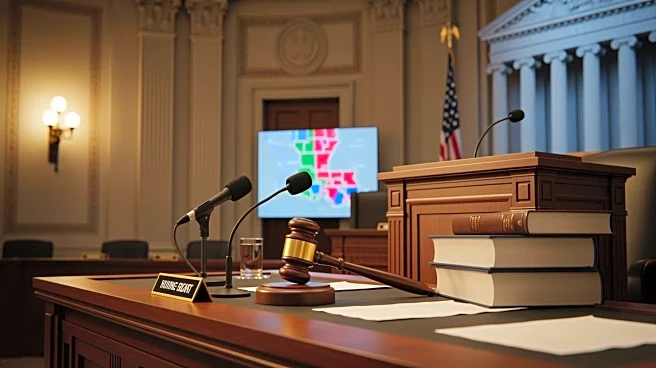What's Happening?
The Supreme Court is preparing to hear a Republican-led challenge to the Voting Rights Act concerning Louisiana's congressional map. This case questions the legality of the current redistricting, which
critics argue diminishes minority voting power. CBS News chief legal correspondent Jan Crawford reports that the case could have significant implications for the enforcement of the Voting Rights Act and the future of congressional districting in the United States.
Why It's Important?
The decision in this case could reshape the landscape of voting rights and districting laws across the country. A ruling that favors the challenge could weaken protections against racial gerrymandering, potentially altering the balance of political power in states with large minority populations. This case is crucial for civil rights advocates and political parties, as it could influence electoral outcomes and minority representation in government. The broader impact on public policy and civil rights legislation is significant, with potential changes to how districts are drawn nationwide.
What's Next?
Following the Supreme Court's decision, there may be increased efforts to redraw congressional maps in various states, leading to further legal challenges and debates over voting rights. Advocacy groups and political leaders are likely to respond with calls for legislative action to safeguard minority representation. The ruling could also prompt discussions on the need for reforms to the Voting Rights Act to ensure fair and equitable districting practices.










